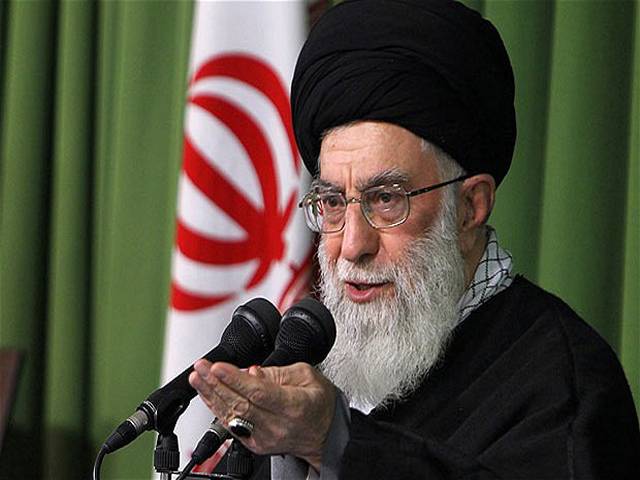LONDON : Iran's Supreme Leader Ayatollah Ali Khamenei has criticised President Hassan Rouhani for saying his detente policy with the West had caused the threat of war to fade as tensions intensify in Tehran before May election. Rouhani, a pragmatist whose election in 2013 led to a diplomatic thaw between Iran and the West, championed in 2015 a landmark deal in which Tehran agreed to curb its nuclear activities in return for lifting of international sanctions.
A standoff between Rouhani, who is seeking a second term, and Khamenei's allies, who opposed the nuclear deal, has intensified in recent months ahead of the May 19 vote.
"Some say since we took office the shadow of war has been faded away. This is not correct," Khamenei was quoted as saying by the state media on Sunday. "It's been people's presence in the political scene that has removed the shadow of war from the country," he added.
Rouhani faces competition from hardliners who have criticised his economic record, saying detente with the West and the nuclear concessions had yet to yield economic benefits. "The nuclear deal was a national achievement. We should make use of its advantages. But some have started a fight over it," Rouhani said on Sunday.
Opening a refinery in the southern city of Bandar Abbas, Rouhani said the project, that makes Iran self-sufficient in petroleum production, was a results of the deal and "interaction with the world". Rouhani urged voters on Saturday to prevent "extremism" returning to Iran, saying the country could face greater authoritarianism if he was replaced by a hardline rival. Among Rouhani's challengers are Ebrahim Raisi, an influential cleric with decades of experience in the hardline judiciary, and conservative Tehran Mayor Mohammad Baqer Qalibaf, a former Revolutionary Guards commander.






